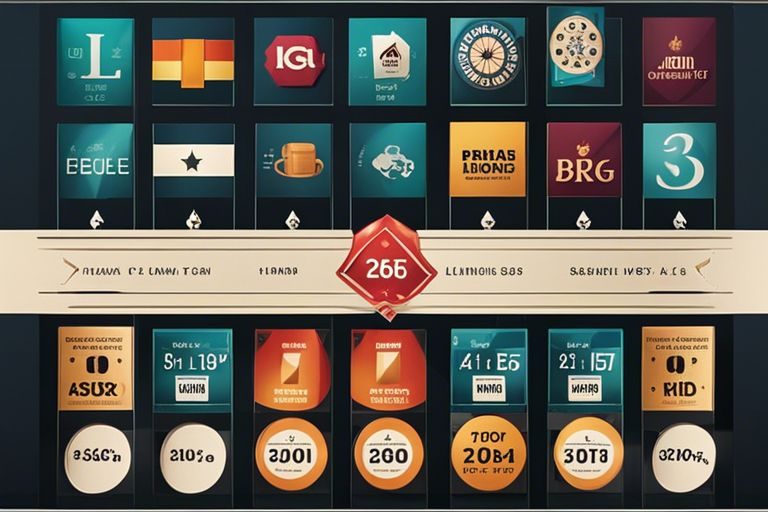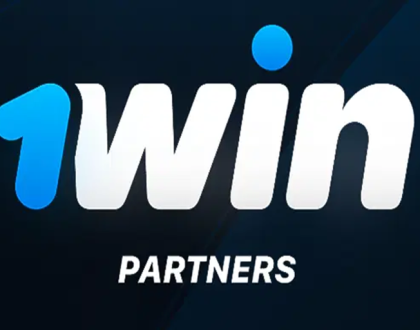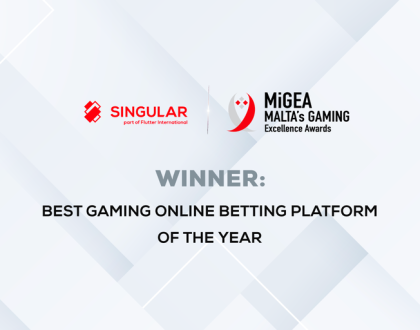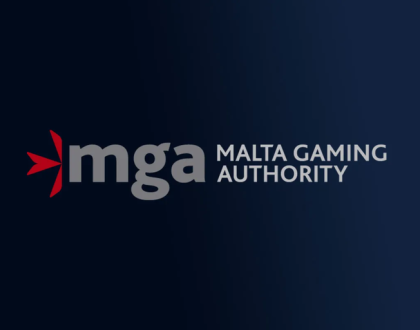The Evolution of iGaming Licensing Bodies

You may wonder how online gambling is regulated and kept safe for consumers. This post will examine into the evolution of iGaming licensing bodies and how they have changed over the years to ensure transparency and security in the online gambling industry. Understanding the role of these regulatory bodies is crucial for both players and operators in the iGaming world.
From the early days of online gambling to the present, licensing bodies have adapted to the ever-changing landscape of the iGaming industry. We will explore the importance of these regulatory bodies, the dangers of operating without proper licensing, and the positive impact they have had on the overall reputation of online gambling. Stay tuned to learn more about this fascinating evolution in the world of iGaming.
Historical Context of iGaming Regulation
Early Days of Online Gaming
For many years, online gaming operated in a relatively unregulated environment. In the late 1990s and early 2000s, the internet boom led to the proliferation of online casinos and betting sites. These platforms provided easy access to gambling activities without the need for players to visit physical locations. However, the lack of oversight raised concerns about player protection, fair play, and the potential for criminal activities such as money laundering.
Emergence of the Need for Licensing Bodies
Bodies responsible for regulating and licensing online gambling operations began to emerge in response to the growing concerns about the industry’s lack of oversight. Licensing bodies such as the Malta Gaming Authority, the UK Gambling Commission, and the Gibraltar Regulatory Authority were established to provide a framework for the operation of online gaming platforms. These bodies set standards for fair gaming, responsible gambling practices, and anti-money laundering measures to protect both players and the integrity of the industry.
It is crucial for players to ensure that they are engaging with online gaming platforms that hold licenses from reputable regulatory bodies. Choosing to play on licensed sites ensures a higher level of player protection, fair gameplay, and accountability from operators.
Foundational iGaming Licensing Jurisdictions
Clearly, the evolution of iGaming licensing bodies has been shaped by a few foundational jurisdictions that have crafted robust regulatory frameworks to ensure player protection and integrity in the industry.
Gibraltar Regulatory Authority
Authority – The Gibraltar Regulatory Authority (GRA) has been a pioneer in establishing itself as a leading iGaming licensing jurisdiction. With a stringent licensing process and a focus on compliance, the GRA has earned a reputation for providing a safe and secure environment for operators and players alike.
Malta Gaming Authority
Malta – The Malta Gaming Authority (MGA) is another key player in the iGaming industry, known for its comprehensive regulatory framework and proactive approach to overseeing online gaming activities. The MGA’s licenses are highly respected in the industry and are recognized for upholding the highest standards of player protection and regulatory compliance.
To truly understand the influence of the Malta Gaming Authority, one must recognize its role as a trailblazer in shaping the regulatory landscape of iGaming, setting a benchmark for other jurisdictions to follow.
UK Gambling Commission
Commission – The UK Gambling Commission is a prominent regulatory body that has played a pivotal role in regulating the iGaming sector in the United Kingdom. With a focus on responsible gaming and consumer protection, the Commission ensures that operators meet stringent requirements to operate in the UK market.
The UK Gambling Commission’s commitment to enforcing strict regulations and holding operators accountable has contributed to a safer and more transparent iGaming environment for players in the UK.
The Development of Licensing Criteria and Standards
Fairness and Integrity of Games
All iGaming licensing bodies prioritize ensuring the fairness and integrity of games offered by operators. To achieve this, strict standards and criteria are set in place to regulate Random Number Generators (RNGs) and ensure that games are not biased towards the house. Regular audits and testing procedures are conducted to detect any irregularities and guarantee that players have a fair chance of winning.
Player Safety and Protection Measures
One of the key aspects of iGaming licensing criteria is player safety and protection measures. Stringent guidelines are enforced to verify the age and identity of players, promoting responsible gambling practices. Moreover, measures such as self-exclusion options, deposit limits, and responsible gaming resources are required to safeguard players from developing gambling addiction issues.
Safety measures such as encryption protocols and secure payment methods are also crucial to protect players’ personal and financial data from cyber threats and fraud. By adhering to these standards, operators ensure a secure and trustworthy gaming environment for their customers.
Operator Financial Responsibility
Licensing bodies also focus on operator financial responsibility to safeguard player funds and ensure that operators can cover any potential winnings. Adequate capitalization requirements and financial reserves are mandated to protect player funds in case of operator insolvency. Additionally, operators are often required to submit regular financial reports to demonstrate their financial stability and compliance with set standards.
Responsibility in managing financial resources is fundamental to maintaining the sustainability and credibility of iGaming operators. By upholding stringent financial criteria, licensing bodies contribute to building trust among players and stakeholders in the industry.
The Expansion of Licensing Jurisdictions
Many licensing jurisdictions have emerged in recent years to meet the growing demand for online gambling operations. These new licensing bodies offer a more streamlined and cost-effective approach to obtaining a license, attracting operators with their competitive fees and efficient processes.
Evolution of Newer Licensing Regions
Licensing bodies in newer regions such as Malta, Gibraltar, and the Isle of Man have gained prominence in the iGaming industry. These jurisdictions offer a supportive regulatory environment, tax incentives, and access to the European market, making them attractive options for operators looking to expand their businesses internationally.
The Caribbean and Curacao e-Gaming
Any online casino enthusiast has likely come across the mention of Curacao e-Gaming in their gaming adventures. Curacao, a Caribbean island, has become a hub for online gambling operators due to its straightforward licensing process and relatively low fees.
To establish an online gaming operation in Curacao, operators must apply for a license through the Curacao e-Gaming Licensing Authority. This process involves meeting certain criteria related to business operations, player protection, and anti-money laundering measures.
Isle of Man and Alderney Gambling Control Commission
Licensing through the Isle of Man Gambling Supervision Commission and the Alderney Gambling Control Commission is highly respected in the industry. These jurisdictions have stringent regulatory frameworks in place to ensure the integrity and security of online gambling operations.
eGaming operators licensed in the Isle of Man and Alderney benefit from a good reputation in the industry, access to skilled manpower, and favorable tax regimes. These jurisdictions are seen as trusted hubs for iGaming companies seeking a secure and reputable base for their operations.
Impact of Technology on Licensing Practices
Once again, the iGaming industry is facing a significant shift in licensing practices due to advancements in technology. The evolution of technology has not only transformed the way online casinos operate but also how licensing bodies regulate and monitor these operators.
Challenges with Cryptocurrencies and Blockchain
One of the biggest challenges faced by licensing bodies is the integration of cryptocurrencies and blockchain technology in iGaming operations. While these technologies offer increased security, transparency, and efficiency, they also present regulatory challenges. Cryptocurrencies allow for anonymous transactions, making it difficult for regulators to trace funds and ensure compliance with anti-money laundering laws. Blockchain technology complicates the verification process, as traditional regulatory frameworks may not be equipped to oversee operations conducted on decentralized ledgers.
Regulation of Software Providers and Random Number Generators
Challenges persist in regulating software providers and ensuring the fairness of random number generators (RNGs) used in online casino games. A key concern is the potential for manipulation or bias in game outcomes, which could severely impact player confidence in the integrity of iGaming operations. To address these challenges, licensing bodies are implementing stricter requirements for software providers and regularly auditing RNGs to ensure compliance with industry standards.
The Role of International Regulatory Cooperation
Now, as the iGaming industry continues to expand globally, the importance of international regulatory cooperation has become crucial. This collaboration between different licensing bodies helps in setting industry standards, sharing information, and addressing common challenges faced in the iGaming sector.
Exchange of Information and Best Practices
Any effective regulatory framework relies on the exchange of information and best practices among licensing bodies. By sharing knowledge and experiences, regulatory authorities can enhance their understanding of emerging trends, technologies, and risks associated with iGaming operations. This collaboration facilitates the development of more robust regulatory frameworks that adapt to the evolving nature of the industry.
Collaborative Efforts Against Illegal iGaming Operations
On the other hand, collaborative efforts against illegal iGaming operations are vital to protect consumers and maintain the integrity of the industry. Regulatory bodies work together to identify and combat unlicensed and illicit iGaming activities that may pose risks to players or undermine the legitimacy of licensed operators.
The cooperation between international regulatory bodies in combating illegal iGaming operations is crucial in ensuring a safe and fair gaming environment for players worldwide.
Future Trends in iGaming Licensing
Harmonization of Licensing Standards
Keep an eye on the trend towards the harmonization of licensing standards in the iGaming industry. As more countries legalize online gambling, there is a growing need to establish consistent regulations and requirements for operators. This shift towards a standardized approach aims to enhance consumer protection, promote fair gaming practices, and combat illegal activities such as money laundering.
Globalization and Regional Specificities
To stay ahead in the iGaming sector, it is crucial to consider the impact of globalization and regional specificities. While the industry is becoming increasingly globalized, each region has its own unique cultural, legal, and market characteristics that must be taken into account. Adapting to these differences is vital for operators looking to expand their businesses across borders.
iGaming operators must navigate the complexities of operating in multiple jurisdictions, each with its own regulations and player preferences. While globalization presents opportunities for growth, it also comes with challenges such as navigating diverse taxation systems, complying with varying advertising standards, and addressing different player needs. Understanding and respecting regional specificities will be key to success in the evolving iGaming landscape.
Final Words
Ultimately, the evolution of iGaming licensing bodies has been instrumental in regulating and legitimizing the online gambling industry. From the early days of unregulated sites to the establishment of stringent licensing requirements and regulations, these bodies have played a crucial role in ensuring the safety and security of players. As the industry continues to grow and evolve, it is important for licensing bodies to adapt and stay ahead of emerging trends and technologies to effectively regulate the ever-changing landscape of iGaming.
In closing, the evolution of iGaming licensing bodies highlights the importance of establishing a framework that prioritizes player protection, fairness, and transparency. By holding operators accountable to high standards and promoting responsible gaming practices, licensing bodies are pivotal in fostering a safe and thriving online gambling environment. Moving forward, continued collaboration between regulators, operators, and players will be key in shaping the future of iGaming licensing and ensuring a sustainable and trustworthy industry for all stakeholders involved.
FAQs
What are iGaming licensing bodies and why are they important?
iGaming licensing bodies regulate online gambling to ensure fairness, player protection, and integrity in the industry. They set standards for operators to follow, promoting a safe environment for players.
How do licensing bodies ensure fairness in online gambling?
Licensing bodies enforce strict regulations on Random Number Generators (RNGs) and conduct audits to guarantee games are unbiased. This ensures players have a fair chance of winning.
What risks are associated with playing on unlicensed iGaming sites?
Unlicensed sites may lack proper oversight, exposing players to risks like unfair games, non-payment of winnings, and inadequate player protection measures.
Which are the leading iGaming licensing jurisdictions?
Prominent jurisdictions include Malta, Gibraltar, and the UK, known for their robust regulatory frameworks and high standards in player protection and operator conduct.
How has technology influenced iGaming licensing practices?
Technological advancements like blockchain and cryptocurrencies present both opportunities and challenges for iGaming regulation, requiring adaptation from licensing bodies.
Michael
With over 20 years experience in web design, SEO and website promotion I always give you an expert advice in regard to any issues related to your Site Design, SEO, Internet Marketing, Promotion, Backlinks, Site Content. In order to help you find out what is missing or can be improved and get higher rankings in Google and more traffic.
Recommended Posts

1win Partners Affiliate Program
July 3, 2024

Singular Wins at MiGEA Awards 2024
July 3, 2024

MGA Outsourcing Compliance Guidelines
July 3, 2024




